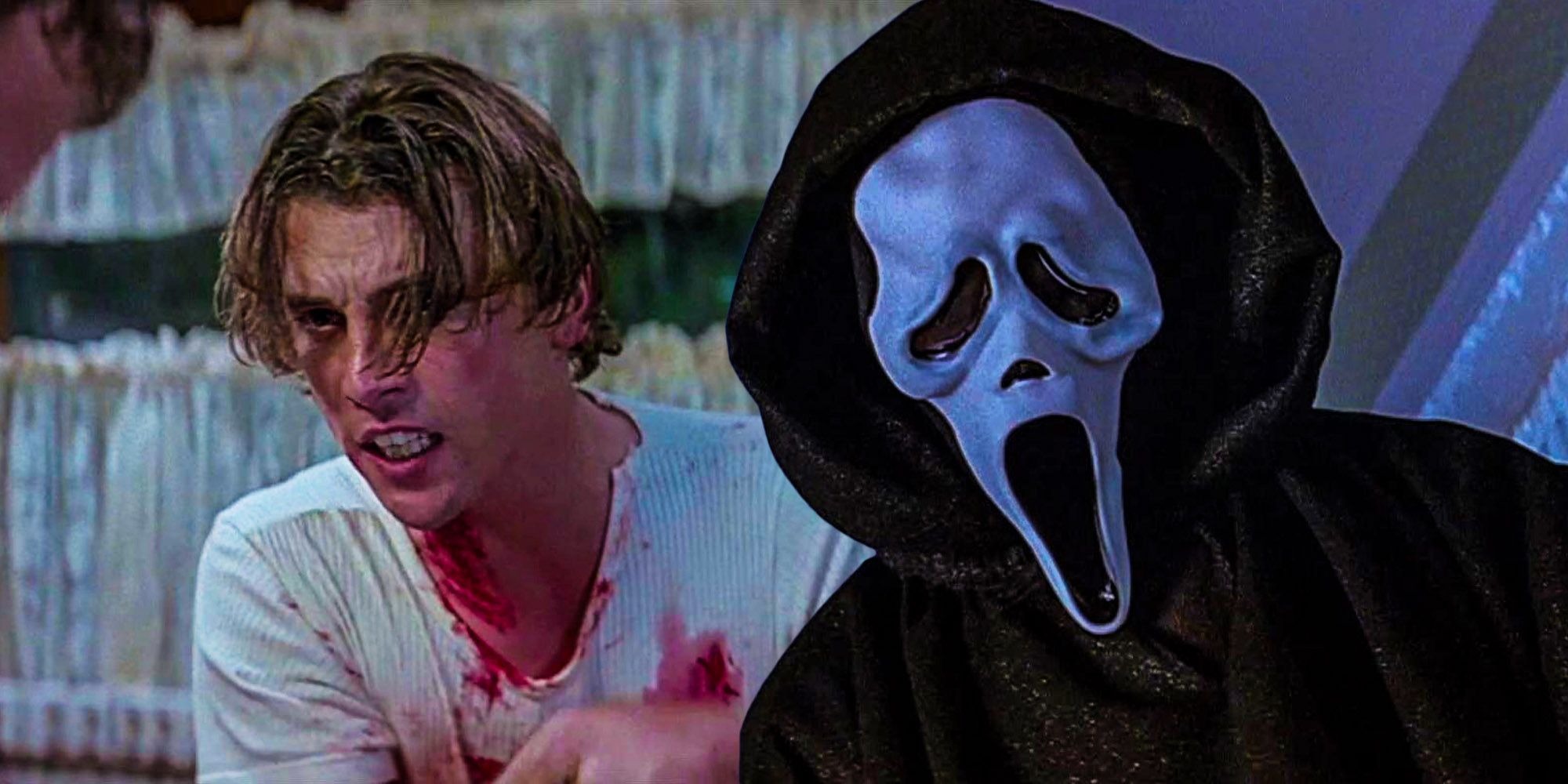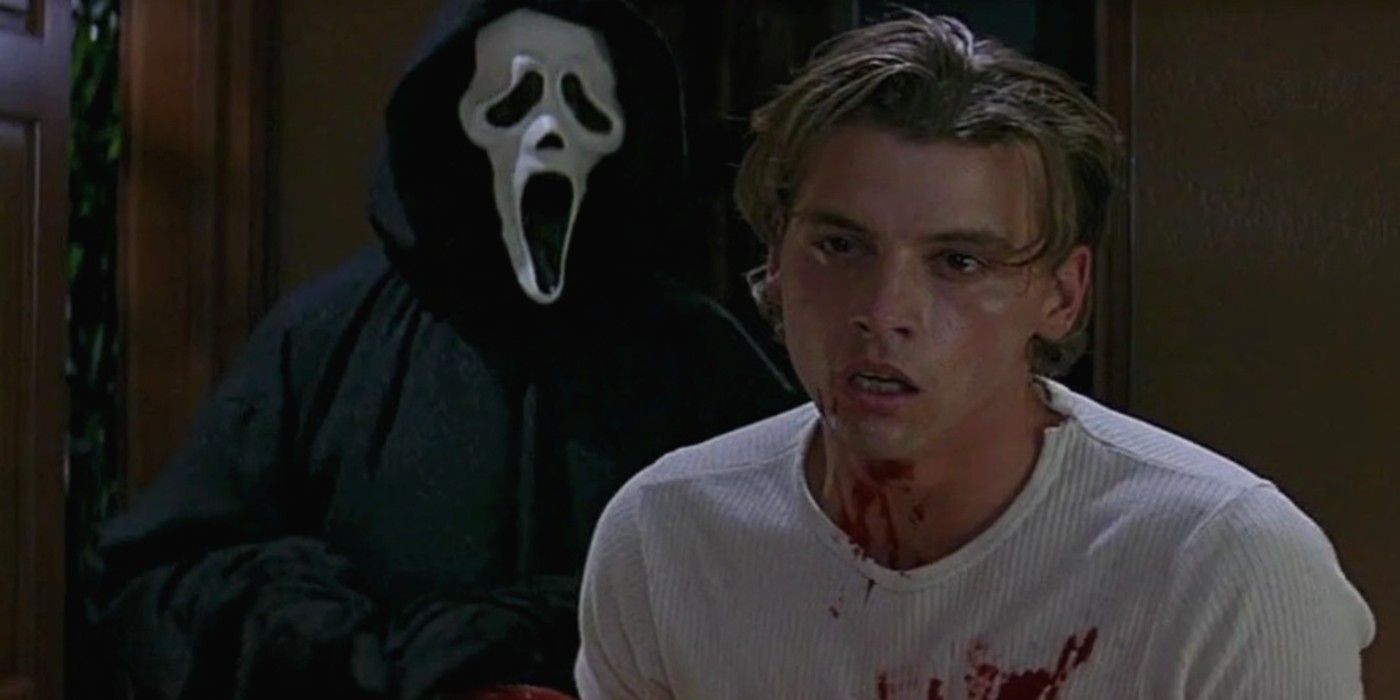
Scream is a modern classic, but the filmmakers were almost forced to cut one iconic line. The film is widely known for its meta-approach to the genre, but part of its appeal is the perfect blend of comedy and horror. The series boasts many chilling setpieces which ensure the jokes never detract from the brutal violence inflicted on the characters.
The story follows teenager Sidney Prescott and her friends as a masked killer with a twisted love for horror movies preys upon the sleepy town of Woodsboro. Scream was an instant success in 1996, launching a franchise comprising four sequels and an MTV television show. At the center is the iconic Ghostface, always finding new ways to terrify victims with a deadly game of horror trivia. Many of the pop culture references are used as a source of humor, but Roger L. Jackson’s sinister voice while taunting characters over the phone plays a crucial role in building tension too.
Some of the murders proved too intense for the MPAA board, who demanded cuts to several scenes of violence for the filmmakers to receive the desired “R” rating. However, according to editor Patrick Lussier in an interview with Scream Thrillogy, the censors also took issue with a famous line from the movie’s climax. The MPAA thought Scream was blaming movies for influencing real-world violence, a theme that would ironically be satirized in the second film and also cause problems during the production of 2000's Scream 3.

During Sidney’s bloody standoff with vengeful boyfriend Billy Loomis and his accomplice Stu, Billy takes offense to Sidney’s remark he’s seen too many movies. He triumphantly responds, “Movies don’t create psychos, movies make psychos more creative!”. However, Lussier reveals, “the MPAA felt that it was a line that incited the movies as a whole as being responsible for violence.” The moment was misunderstood by the censors, who eventually relented after producer Bob Weinstein - brother of the disgraced Harvey Weinstein - insisted Scream was more a satirical comedy than a true slasher. The filmmakers agreed to remove some of the gore but were firm on keeping the line intact. It’s a clever comment that references Billy's obsession with horror films, which inspired him to work his trivia knowledge into his murder spree and enlist fellow movie fanatic Stu. After all, movies were simply a cover for Billy's real motive – revenge on Sidney pushing him away, along with his father's affair with her mother.
Director Wes Craven and screenwriter Kevin Williamson clearly weren’t deterred by the MPAA's objection, as Scream 2 doubled down on the influence of violence in cinema. The sequel’s killer, film student Mickey, planned on blaming movie violence in his deluded hope of being acquitted of his crimes. Mickey’s motive is seriously flawed, but it makes for an interesting reversal of the first movie. The topic of cinematic violence later impacted Craven’s third film. In the wake of the Columbine High School shootings, the media’s depiction of bloodshed faced intense scrutiny. Scream 3 was forced to abandon plans for a murderous fan club devoted to Stab - Scream's fictional movie detailing the original Woodsboro murders - which would also have seen the return of Matthew Lillard's Stu, orchestrating a new wave of killings from prison.
Scream 3’s move from Woodsboro to Hollywood wasn’t as well-received as the previous two films, but it still managed to include a critique of sexual abuse within the industry. Scream is largely remembered for its black humor, but the series' social commentary on the power of cinema retains its relevancy. Billy’s line provided one of the most quotable moments from a movie filled with memorable dialogue.
from ScreenRant - Feed https://ift.tt/3riypwg

0 Comments